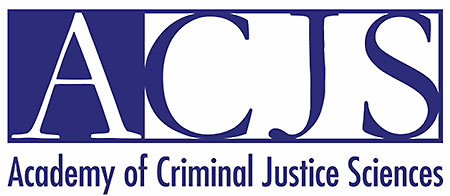March 29, 2023
Letter to ACJS membership on the ACJS Executive Board’s Statement on Academic Freedom
To the membership of the Academy of Criminal Justice Sciences,
In the wake of the social justice movements experienced across the nation, a coordinated legislative campaign has been initiated to limit how topics related to race, racism, and gender can be discussed, taught, and researched on many college campuses. Since 2021, 31 states have introduced more than 96 laws that specifically target colleges and universities. To date, eight states have successfully passed a law that explicitly limits academic freedom within their public colleges and universities, and twenty-four additional bills are currently under consideration .
While the primary target of these laws is directed at those who teach the history of the United States, given the exceptionally vague language included in the proposals, other disciplines, like criminal justice and criminology, have been negatively affected as well. Many of the classes that are taught in our programs address the role of race and/or gender in the social construction of crime and victimization, how those factors affect decision-making throughout criminal justice processes, as well as the disparate impact of justice outcomes among racial/ethnic minorities. As academics, we have the freedom to choose what topics we want to investigate and how we want to disseminate those results. These rights are enumerated in the principles of academic freedom. The concept of academic freedom was first introduced by the American Association of University Professors (AAUP) in 1940, and specifies “it is the freedom of a teacher or researcher in higher education to investigate and discuss the issues in his or her academic field, and to teach or publish findings without interference from political figures, boards of trustees, donors, or other entities”.
Academic freedom is fundamental to higher education. It allows faculty to teach the subjects in which they have expertise, which in turn, provides students the opportunity to learn about those topics and be exposed to varied and numerous perspectives while forming their own opinions and beliefs, even when they disagree with what is being shared. Failure to learn and engage in critical thinking across differences and disagreements undermines students’ personal intellectual growth and causes them to be ill-prepared to enter the marketplace where they will be expected to know how to navigate different perspectives. Moreover, academic freedom allows faculty to conduct research on the topics they have expertise, which in turn aids in the development of sound policy which is central to the stability and well-being of our nation. Thus, these legislative efforts to substitute political mandates for the considered judgment of professional educators are not only unreasoned, but are also short-sighted.
Given the ramifications these laws pose to our livelihood, individually and collectively, it is imperative we, as the Executive Board of the Academy of Criminal Justice Sciences, vociferously voice our opposition to any legislative efforts that will jeopardize the educational standards in our discipline, as well as seeks to undermine our ability to conduct research that can help to inform policy and practice. More importantly, we publicly condemn such efforts to demonstrate our broader commitment to the preservation and defense of academic freedom writ-large.
This statement of support was ratified by the ACJS Executive Board on March 14, 2023 and is approved by Past, Immediate, Current and Upcoming Presidents of the Academy of Criminal Justice Sciences.
Heather Pfeifer
President of ACJS 2021-2022
Denise Paquette Boots
Immediate Past President of ACJS 2023-2024
Anthony Peguero
President of ACJS 2023-2024
Bitna Kim
1st Vice President of ACJS 2023-2024
__________________________________________
[1] PEN America. (2023). Index of educational gag orders.
[2] American Association of University Professors. (n.d.). FAQs on academic freedom.
https://www.aaup.org/programs/academic-freedom/faqs-academic-freedom
